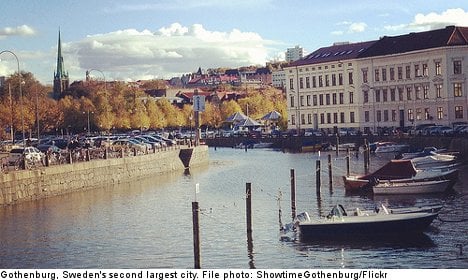“In 30 minutes we got bids for €1.25 billion, says Magnus Borelius, finance director for the City of Gothenburg, told the local Göteborgs Posten (GP) daily.
The money that the municipality pulls in through the the bonds is earmarked for environmental projects. The funds generated on Friday will be used for a water treatment plant.
City of Gothenburg is the first public body in the Nordic region to issue green bonds in accordance with the World Bank’s rules. The World Bank is behind the project to issue green bond and is responsible for the definition.
IN PICTURES: See stunning pictures of Gothenburg after sunset
Magnus Borelius underlined that the move is not a means to simply increase the debt carried by the city.
“This is not a question of increasing debt levels in the city, it is about swapping money for green money.”
The green bonds have been described by the municipal council chairwoman Anneli Hultén as an important step in the city’s environmental work.
“In practice it means that the city can make use of its strong standing in the finance markets to move towards a more environmentally-friendly world,” she said to GP.
The Local/pvs



 Please whitelist us to continue reading.
Please whitelist us to continue reading.
Member comments